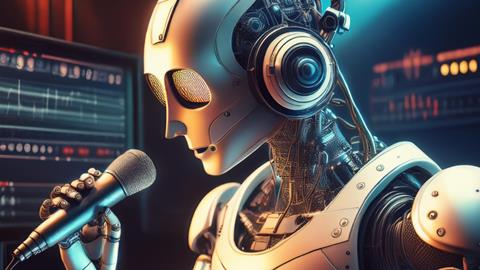Sam Peterson, COO of Bitcentral, believes media businesses will have new methods of communication with their service providers

Customer support is poised for a significant evolution, powered by advancements in AI and machine learning (ML). While external chatbots have long promised cost savings, their impersonal approach and limited ability to solve complex problems have left many customers dissatisfied. The real breakthrough lies in leveraging AI to enhance internal support teams, enabling them to streamline workflows while preserving the personalized service customers expect.
As media technology grows more complex, the demand for fast, reliable, and empathetic customer service is increasing. Companies must adopt AI/ML-powered tools to meet these expectations and set the stage for a new era of customer support.
Evolving customer support in media tech
Recently, customer support in media technology has relied on two primary approaches: external chatbots and manual troubleshooting. Each comes with significant limitations.
External chatbots, while cost-effective, often fail to address nuanced and technical challenges, leading to customer frustration. On the other hand, manual troubleshooting can be resource-intensive and slow, falling short of today’s expectations for quick and effective service.
In 2025, the focus must shift toward AI-enhanced internal tools. These tools promise to transform customer support by enabling faster navigation of vast knowledge bases and offering contextually relevant solutions tailored to specific needs. This blend of automation and human oversight delivers efficiency without sacrificing the personalized experience customers seek.
Enhancing support with AI-powered internal tools
Internal AI-driven tools are quickly emerging as a game-changer for customer support teams. These tools are not designed to replace human interaction but to empower support engineers with faster access to solutions.
For instance, AI systems are increasingly adept at navigating vast knowledge bases, identifying relevant information in seconds, and offering actionable recommendations based on past cases. By handling repetitive or administrative tasks, these tools free support engineers to focus on resolving the unique and complex issues that require human intuition and expertise.
While AI streamlines access to relevant information, the human element remains critical. Customers consistently prefer human-to-human interaction; 81% of respondents to a Callvu survey would prefer to wait a few minutes to speak to a live agent versus engaging with an AI chatbot immediately. Internal chatbots do not eliminate this connection; instead, they enhance it by reducing engineers’ administrative workload and allowing them to solve customer problems faster. This approach strikes a balance between operational efficiency and the empathetic service that customers consistently prefer.
Navigating challenges and opportunities
The shift to AI-powered customer support is not without its hurdles. One key challenge is ensuring the accuracy and relevancy of AI systems, which must consistently deliver context-aware solutions, particularly for evolving or highly technical issues. Additionally, as AI tools process large volumes of customer data, companies must address data privacy concerns by implementing robust security measures to maintain customer trust.
Despite these challenges, the opportunities are vast. By improving the interfaces and user experience of AI tools, support teams can work seamlessly and maximize their effectiveness. Integrating AI tools with CRM platforms and other enterprise systems further unifies workflows, enabling better collaboration and faster resolutions. For companies that navigate these challenges successfully, the benefits of streamlined processes and higher customer satisfaction are undeniable.
The future of customer support: balancing automation and human connection
To remain competitive in 2025, media technology companies must embrace AI/ML-driven internal tools as a cornerstone of their customer support strategy. These innovations promise to accelerate resolution times, enhance the efficiency of support engineers, and improve customer satisfaction by blending automation with personalized service.
The real measure of success lies in finding the perfect balance. Companies that integrate AI to amplify—not replace—their human teams will not only meet rising customer expectations but also set a new standard for service excellence in the media tech industry. The future of customer support is not about replacing human connections but about empowering them, creating faster, smarter, and more satisfying interactions for everyone involved.

Sam Peterson is COO of Bitcentral







No comments yet